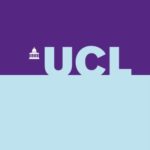 About the course
About the course
This MSc is specifically aimed at those pursuing a professional career in neuroimaging, either in clinical practice or in neuroscience research. This multidisciplinary programme provides training in both the basic scientific and technological principles of modern neuroimaging methods, and in their application to understand neurological function and neurological disorders. Study by distance learning is also available.
This MSc is specifically aimed at those pursuing a professional career in neuroimaging, either in clinical practice or in neuroscience research. This multidisciplinary programme provides training in both the basic scientific and technological principles of modern neuroimaging methods, and in their application to understand neurological function and neurological disorders. Study by distance learning is also available.
Programme starts
September each year
Modes and duration
Full time: 1 year
Part time: 2 years
Flexible: up to 5 years
Distance learning: available
Entry requirements
A minimum of a second-class UK Bachelor’s degree in an appropriate discipline or an overseas qualification of an equivalent standard is required. Students with other qualifications may also be admitted if they possess relevant experience in a field related to neuroradiology and/or medical physics.
English language requirements
If your education has not been conducted in the English language, you will be expected to demonstrate evidence of an adequate level of English proficiency.
The English language level for this programme is: Standard
UCL Pre-Master’s and Pre-sessional English courses are for international students who are aiming to study for a postgraduate degree at UCL. The courses will develop your academic English and academic skills required to succeed at postgraduate level. International Preparation Courses
Further information can be found on our English language requirements page.
International students
Country-specific information, including details of when UCL representatives are visiting your part of the world, can be obtained from the International Students website.
International applicants can find out the equivalent qualification for their country by selecting from the list below.
About this degree
Students will develop a foundational knowledge of neuroanatomy, understand the principles and main technical aspects of neuroimaging instrumentation and data acquisition, basic image processing and image analysis techniques, and gain a good working knowledge of modern methods for scientific and clinical investigation of the human nervous system using neuroimaging.
Students undertake modules to the value of 180 credits.
The programme consists of six core modules (90 credits), a library project (30 credits) and a research project (60 credits).
Upon successful completion of 180 credits, you will be awarded a MSc in Advanced Neuroimaging.
Please note that the list of modules given here is indicative. This information is published a long time in advance of enrolment and module content and availability is subject to change.
Compulsory modules
All of the Advanced Neuroimaging modules are considered core modules
- Physical Science module 1: Introductory Science and Methods
- Physical Science module 2: Imaging Modalities
- Physical Science module 3: Advanced Imaging
- Clinical module 1: Introduction to Neuroanatomy, Systems & Disease
- Clinical module 2: Pathology & Diagnostic Imaging I
- Clinical module 3: Pathology & Diagnostic Imaging II
- Library project
- Research Project
Please note: every face-to-face module has a distance learning equivalent with some alternative learning activities.
Optional modules
There are no optional modules for this programme.
Dissertation/report
All students undertake a library project which is assessed by a 5,000-word project, and a laboratory research project which culminates in a 10,000-word dissertation and poster presentation.
Teaching and learning
The programme is taught by lectures and workshops delivered by experts in various clinical and technical fields of neuroimaging. Assessment is through written examination, coursework, presentations and dissertation. Distance Learning students should spend between one and three months in London (cumulatively) carrying out the research project and receiving relevant training and mentoring. Alternatively they may carry out an extended systematic review of the literature related to a chosen field within neuroimaging – this does not require any time in London. In exceptional circumstances students may carry out the research project remotely if they are based at an institution with established research links with Principal Investigators at the UCL Queen Square Institute of Neurology.
Additional costs
Course Website
( https://www.ucl.ac.uk/prospective-students/graduate/taught-degrees/advanced-neuroimaging-msc )

